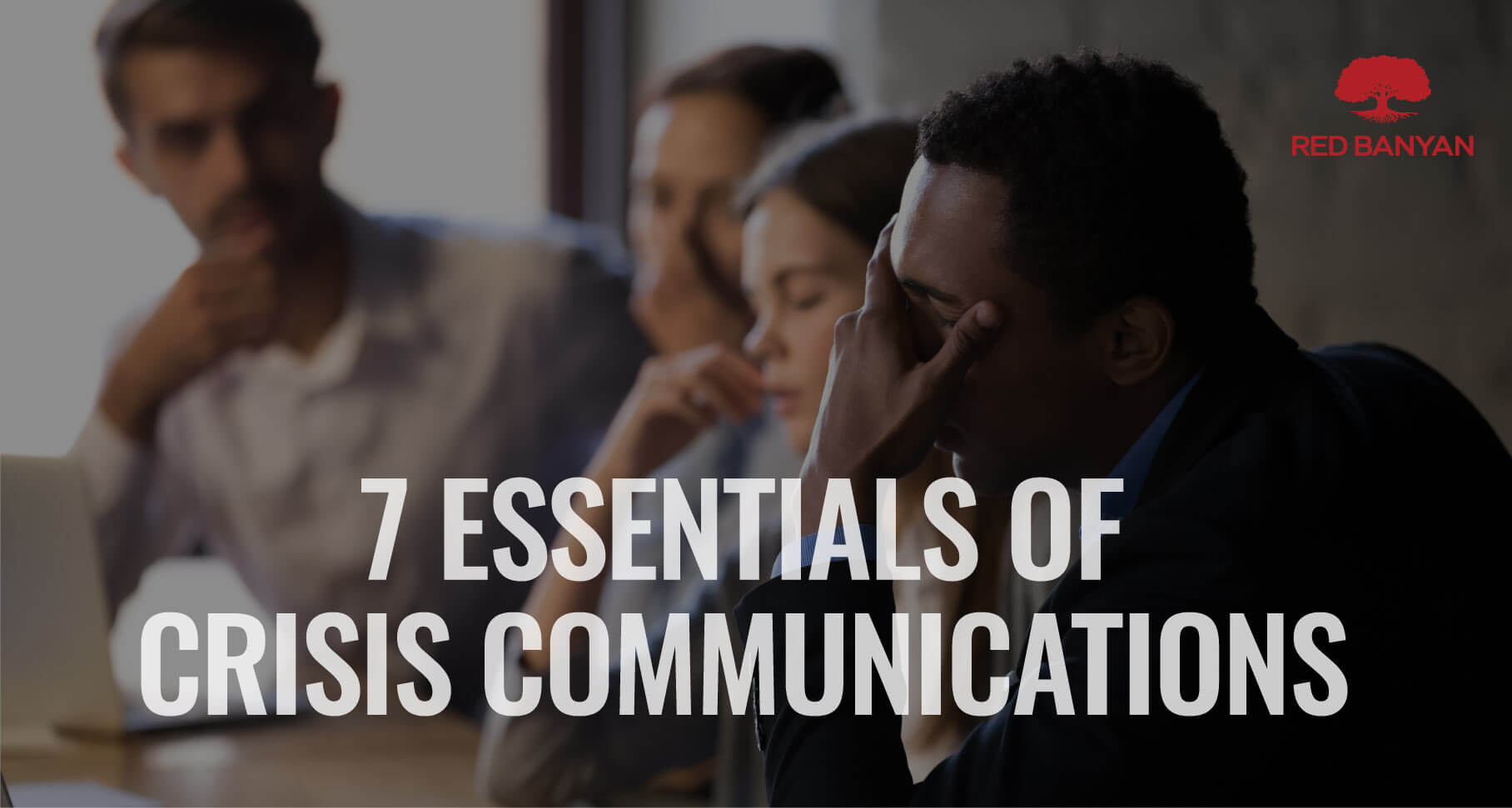7 Essentials of Crisis Communications
March 21, 2023 | Category: Blog, Branding, Crisis PR, Media Relations, Public Relations, Social Media

Crisis communication is a critical aspect of any organization’s public relations strategy. In times of crisis, it is essential to effectively communicate with stakeholders to mitigate negative impact and protect the reputation of the organization. Here are some key points to ensure effective crisis communications:
- Reflect: Take the time to assess the situation and determine the best course of action. This includes identifying the cause of the crisis, assessing the potential impact, and determining the key stakeholders who will be affected.
- Control the narrative: It is important to proactively communicate with stakeholders to provide accurate and timely information. This helps to prevent rumors and misinformation from spreading, and also allows the organization to shape the narrative around the crisis.
- Own up to mistakes: If the organization has made a mistake, it is important to admit it and take responsibility. This shows integrity and honesty and can help to mitigate the negative impact of the crisis.
- Be honest and transparent: In times of crisis, it is important to be honest and transparent with stakeholders. This includes providing accurate and timely information and being open to answering questions and addressing concerns.
- Create a crisis PR plan: It is important to have a crisis PR plan in place before a crisis occurs. This plan should include clear roles and responsibilities, a communication strategy, and a list of key stakeholders to contact in the event of a crisis.
- Monitor social media: Social media can be a powerful tool for disseminating information and engaging with stakeholders during a crisis. It is important to monitor social media channels for mentions of the organization and respond to any negative comments or concerns in a timely manner.
- Check your online profile: It is important to regularly check your organization’s online profile for negative comments or reviews. This allows you to address any concerns and improve your online reputation.
By following these checks and balances, organizations can effectively communicate with stakeholders and mitigate the negative impact of a crisis. Remember, crisis communication is not just about managing the problem but also providing a positive outcome.
Crisis communications best practices include:
- Developing a crisis response plan in advance to have a guideline to follow during an emergency.
- Having a speedy response to the crisis, as a delay can negatively impact the outcome.
- Designating a single spokesperson to control and coordinate the organization’s messaging.
- Being transparent and honest in communication, taking responsibility for the crisis if applicable and providing updates regularly.
- Being prepared to handle different types of communication, including traditional and social media.
- Regularly testing and updating the crisis response plan to ensure it is effective, relevant and comprehensive.
- Training employees on the plan and their roles in a crisis.
- Monitoring and analyzing the public’s perception and feedback of the organization during the crisis.
Red Banyan’s team of crisis communications experts have years of experience handling high stakes crisis communications in addition to traditional public relations. Our team of Red Banyan crisis PR consults can tailor a crisis communications plan to fit your organization’s specific needs so you will be prepared should an emergency arise.
- What is crisis communications? Crisis communication refers to the technologies, systems and protocols that enable an organization to effectively communicate during a major threat to its business or reputation.
- Why is online reputation management important? Your online reputation is the face of your brand so making sure it represents a positive image of your organization is essential.
- Do reviews matter? Positive reviews create an online reputation that consumers can trust. Negative reviews can have a chilling effect on business and scare consumers away.
- What is a crisis response plan? A crisis management plan outlines how your business will react if a crisis occurs. The plan should identify who will take action and what their roles will be.
Is media training valuable? Media training is one of the best ways to make sure you convey the messages that you want in the way you want.

